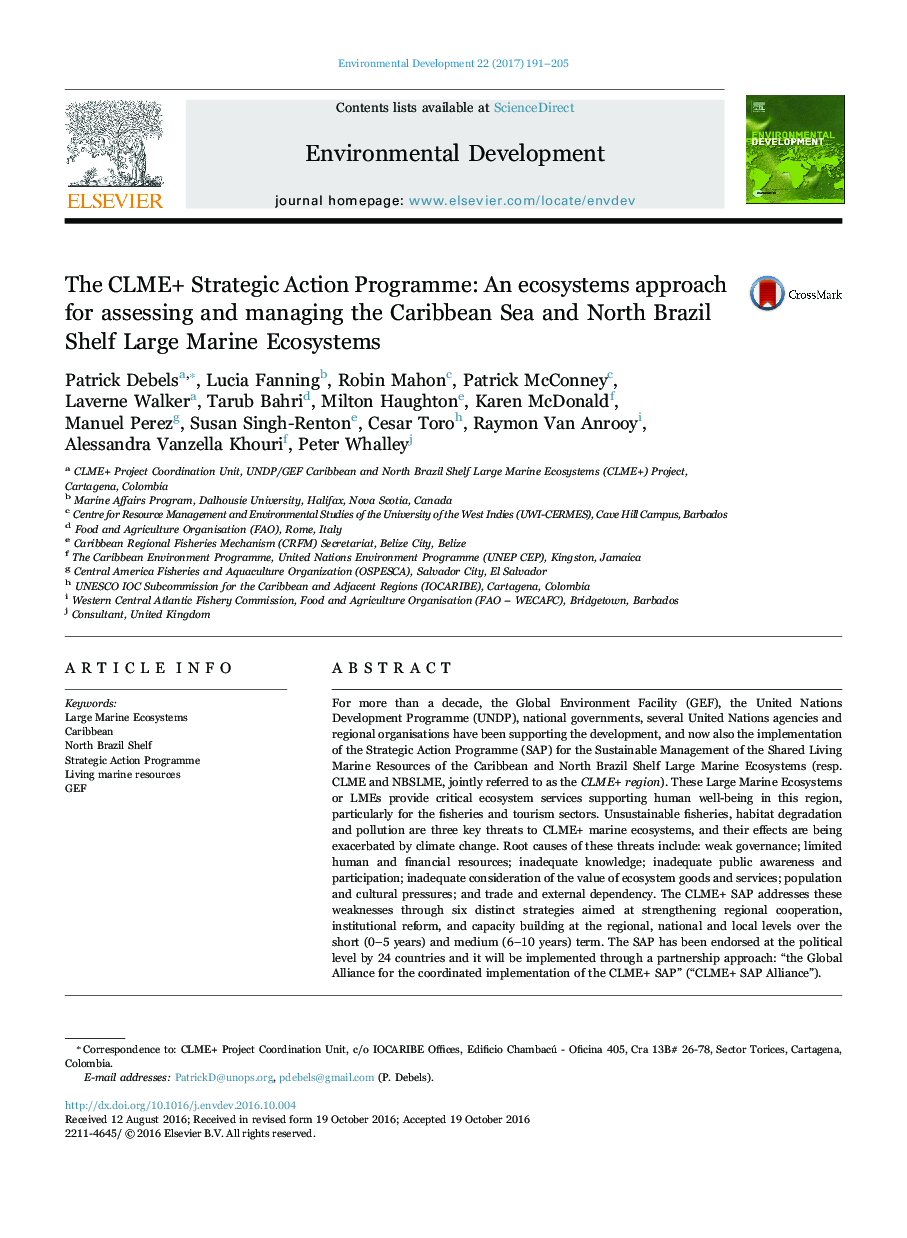| Article ID | Journal | Published Year | Pages | File Type |
|---|---|---|---|---|
| 5744140 | Environmental Development | 2017 | 15 Pages |
â¢CLME+ region: Caribbean and North Brazil Shelf Large Marine Ecosystems provide critical goods and services.â¢Geopolitical complexity, 26 countries and 18 overseas territories.â¢Unsustainable fisheries, habitat degradation and pollution are key threats.â¢Root causes include weak governance.â¢A 10-year ecosystem-based Strategic Action Programme (SAP) aims at addressing root causes.â¢The global “CLME+ Alliance” is being created to support implementation of the SAP.
For more than a decade, the Global Environment Facility (GEF), the United Nations Development Programme (UNDP), national governments, several United Nations agencies and regional organisations have been supporting the development, and now also the implementation of the Strategic Action Programme (SAP) for the Sustainable Management of the Shared Living Marine Resources of the Caribbean and North Brazil Shelf Large Marine Ecosystems (resp. CLME and NBSLME, jointly referred to as the CLME+ region). These Large Marine Ecosystems or LMEs provide critical ecosystem services supporting human well-being in this region, particularly for the fisheries and tourism sectors. Unsustainable fisheries, habitat degradation and pollution are three key threats to CLME+ marine ecosystems, and their effects are being exacerbated by climate change. Root causes of these threats include: weak governance; limited human and financial resources; inadequate knowledge; inadequate public awareness and participation; inadequate consideration of the value of ecosystem goods and services; population and cultural pressures; and trade and external dependency. The CLME+ SAP addresses these weaknesses through six distinct strategies aimed at strengthening regional cooperation, institutional reform, and capacity building at the regional, national and local levels over the short (0-5 years) and medium (6-10 years) term. The SAP has been endorsed at the political level by 24 countries and it will be implemented through a partnership approach: “the Global Alliance for the coordinated implementation of the CLME+ SAP” (“CLME+ SAP Alliance”).
